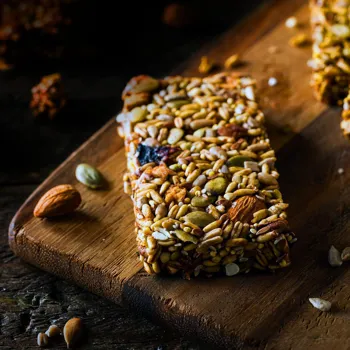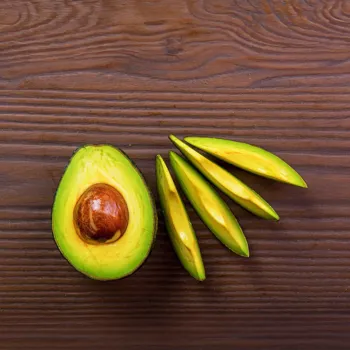Discover the art of choosing healthy snacks wisely! Uncover 10 tips for nourishing choices that fuel your vitality
In today's fast-paced world, snacking has become an integral part of our daily routines.
However, navigating the snack aisle can feel like an endless maze of sugary, salty, and processed options.
Making smart snack choices is crucial for maintaining energy levels, supporting overall health, and preventing unnecessary weight gain. So, how do you choose healthy snacks that satisfy your cravings without derailing your well-being? Here are 10 tips to guide you towards making informed and nutritious decisions:
Read the Labels Like a Pro:
Don't be fooled by attractive packaging or clever marketing slogans. The Nutrition Facts label is your best friend when it comes to deciphering the true nutritional value of a snack.
Pay close attention to the serving size, calories, total fat (especially saturated and trans fats), sodium, added sugars, and fiber content. Opt for snacks that are lower in saturated fat, sodium, and added sugars, and higher in fiber.
Fiber helps you feel fuller for longer, preventing overeating and promoting digestive health. Remember, knowledge is power – the more you understand what's in your food, the better equipped you are to make healthy choices.
Prioritize Whole, Unprocessed Foods:
Whenever possible, choose whole, unprocessed foods over packaged snacks. These foods are naturally packed with nutrients and free from artificial additives, preservatives, and excessive amounts of salt, sugar, and unhealthy fats.
Fresh fruits, vegetables, nuts, seeds, and plain yogurt are excellent examples of whole food snacks that provide a wealth of vitamins, minerals, and antioxidants.
These options are not only healthier but also more satisfying in the long run, as they provide sustained energy and support bodily functions. Think of an apple with a handful of almonds instead of a processed granola bar.
Control Portion Sizes Like a Boss:
Even healthy snacks can contribute to weight gain if consumed in excess. Practice portion control by measuring out your snacks before you start eating. Use small bowls or containers to help you visualize the appropriate serving size.
Avoid eating directly from the bag or box, as this can lead to mindless overeating. If you're buying packaged snacks, stick to the recommended serving size listed on the label.
Learning to recognize appropriate portion sizes is a key skill in maintaining a healthy weight and preventing overconsumption of calories.
Embrace the Power of Protein:
Protein is an essential nutrient that plays a vital role in building and repairing tissues, supporting immune function, and keeping you feeling full and satisfied. Including a source of protein in your snacks can help prevent energy crashes and reduce cravings for unhealthy foods.

Good sources of protein for snacks include Greek yogurt, cottage cheese, hard-boiled eggs, nuts, seeds, and edamame. Aim for at least 5-10 grams of protein per snack to reap the benefits. Protein keeps you feeling energised.
Don't Fear Healthy Fats:
While it's important to limit saturated and trans fats, healthy fats are essential for brain function, hormone production, and overall health.

Monounsaturated and polyunsaturated fats, found in foods like avocados, nuts, seeds, and olive oil, can actually help lower cholesterol levels and reduce the risk of heart disease. Including small amounts of healthy fats in your snacks can also help you feel more satisfied and prevent overeating.
A handful of walnuts or a small avocado with whole-wheat crackers can be a nutritious and delicious snack option.
Hydrate with Water First:
Sometimes, what we perceive as hunger is actually thirst in disguise. Before reaching for a snack, drink a glass of water and wait a few minutes to see if your "hunger" subsides. Staying adequately hydrated can help you feel fuller, boost your metabolism, and prevent overeating.
Keep a water bottle with you throughout the day and aim to drink at least eight glasses of water daily. You can also infuse your water with fruits, vegetables, or herbs to add flavor and make it more enjoyable.
Try adding cucumber and mint or lemon and ginger to your water for a refreshing and hydrating beverage.
Plan Your Snacks in Advance:
One of the biggest reasons people make unhealthy snack choices is because they're caught unprepared when hunger strikes. Take the time to plan your snacks for the day or week ahead and pack them in advance.
This will help you avoid impulsive decisions and ensure that you always have healthy options on hand. Keep a stash of healthy snacks at home, at work, and in your car so you're never caught short. Some good options for on-the-go snacking include trail mix, fruit, yogurt tubes, and vegetable sticks.
Spice Things Up with Flavor:
Healthy snacks don't have to be boring! Experiment with different herbs, spices, and seasonings to add flavor and excitement to your snacks. Sprinkle cinnamon on your oatmeal, add chili powder to your roasted chickpeas, or dip your vegetables in hummus with a sprinkle of paprika.
Using flavor enhancers can help you reduce your reliance on salt, sugar, and unhealthy fats to make your snacks more appealing. Plus, many herbs and spices have antioxidant and anti-inflammatory properties that can benefit your health.
Beware of "Health Halo" Marketing:
Just because a product is labeled "organic," "all-natural," "low-fat," or "gluten-free" doesn't automatically make it a healthy choice. Many of these products are still high in sugar, sodium, or unhealthy fats.
Don't be swayed by marketing claims – always read the Nutrition Facts label to assess the true nutritional value of a snack, regardless of what it says on the front of the package.
Companies often use clever marketing tactics to convince consumers that their products are healthier than they actually are.
Listen to Your Body's Cues:
Pay attention to your body's hunger and fullness cues. Eat when you're genuinely hungry and stop when you're satisfied, not stuffed. Avoid eating out of boredom, stress, or emotions.

If you're struggling to distinguish between true hunger and emotional eating, try keeping a food journal to track your eating habits and identify triggers.
You can also practice mindful eating techniques, such as slowing down, savoring each bite, and paying attention to the taste, texture, and aroma of your food.
Snacking Smart for a Healthier You
Making healthy snack choices is not about deprivation or restriction; it's about making informed decisions that nourish your body and support your overall well-being.
By following these 10 tips, you can transform your snacking habits from a source of guilt and regret to a source of energy, vitality, and enjoyment. Remember, small changes can make a big difference in the long run.
Start incorporating these strategies into your daily routine and watch your health and happiness flourish. Choose wisely, snack smartly, and embrace a healthier, more vibrant you!
It's all about making small changes that add up to big results.
Consider swapping that packet of chips for a handful of roasted chickpeas.
Small steps lead to significant health benefits over time.
Always remember to check the ingredients list on the packet.
This shows you if ingredients that are mentioned are actually present and beneficial, and in what quantities. Small changes, big difference – that’s the motto here. Focus on progress, not perfection, and remember to enjoy the journey towards a healthier you!
AI Generated Content. Glance/InMobi shall have no liability for the content














